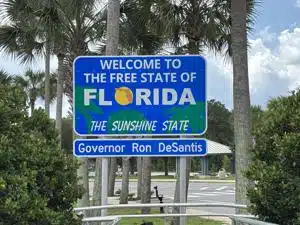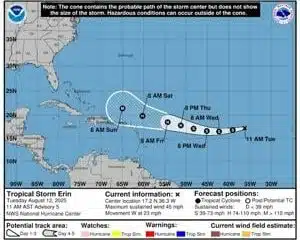(The Center Square) – Days after President Donald Trump declared “Liberation Day” by federalizing the Washington, D.C. Metropolitan Police Department and deploying hundreds of National Guard members to curb crime, D.C. Attorney General Brian Schwalb is filing a lawsuit against the Trump administration claiming the federal takeover is unlawful.
Schwalb describes the Trump administration’s federal takeover of MPD as “brazenly unlawful” and a “hostile takeover,” adding that Trump has “limited authority” in invoking Section 740 of the Home Rule Act.
“The federal government’s power over DC is not absolute, and it should not be exercised as such. Section 740 of the Home Rule Act permits the President to request MPD’s services. But it can only be done temporarily, for special emergencies, and solely for federal purposes,” the attorney general posted on X Friday morning.
He claims the Home Rule Act “keeps operational control of MPD with the Mayor and Chief.”
“This is an affront to the dignity and autonomy of the 700,000 Americans who call DC home. Our office will go to court to defend Home Rule, block the unlawful orders, and maintain MPD under District control. We have no choice but to stand up for DC residents’ rights and safety,” Schwalb wrote.
The lawsuit comes on the heels of U.S. Attorney General Pam Bondi issuing an order to replace MPD Chief Pamela Smith with Drug Enforcement Administration Administrator Terry Cole to serve as the agency’s “emergency police commissioner.” In addition, the Trump administration rescinded the district’s “sanctuary policies,” allowing law enforcement to cooperate with Immigration and Customs Enforcement officials.
Trump tapped Bondi to take operational control of the Metropolitan Police as part of an executive order, citing “out of control” violence in the nation’s capital.
Trump claims the district has “crime, bloodshed, bedlam and squalor and worse” in defense of his reasoning to invoke the act.
Prior to declaring “Liberation Day” in the district, the president described the city’s crime as “out of control,” citing youth violence.
“Crime in Washington, D.C., is totally out of control. Local ‘youths’ and gang members, some only 14, 15, and 16-years-old, are randomly attacking, mugging, maiming, and shooting innocent Citizens, at the same time knowing that they will be almost immediately released,” Trump lamented. “They are not afraid of Law Enforcement because they know nothing ever happens to them, but it’s going to happen now! The Law in D.C. must be changed to prosecute these ‘minors’ as adults, and lock them up for a long time, starting at age 14.”
As the law currently stands, Section 740 of the Home Rule Act only allows the president to federalize MPD for up to 30 days.
However, a group of Republicans in Congress is trying to alter or rescind the Home Rule Act. Rep. Andy Ogles, R-Tenn., is proposing a resolution to remove the 30-day limit.
In February, U.S. Sen. Mike Lee, R-Utah, and Ogles introduced legislation to repeal the Home Rule Act, claiming the district is plagued by violence and crime.
The duo tied the title of the legislation to Democratic Mayor Muriel Bowser. The Bringing Oversight to Washington and Safety to Every Resident Act can be shortened to the BOWSER Act.
The District of Columbia Home Rule Act of 1973 was enacted by Congress and ratified by D.C. voters. The act gave the district residents limited autonomy over local affairs, allowing them to elect local leaders, including mayors and council members.



















































